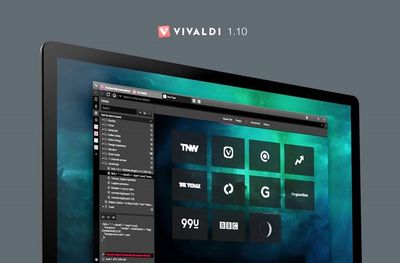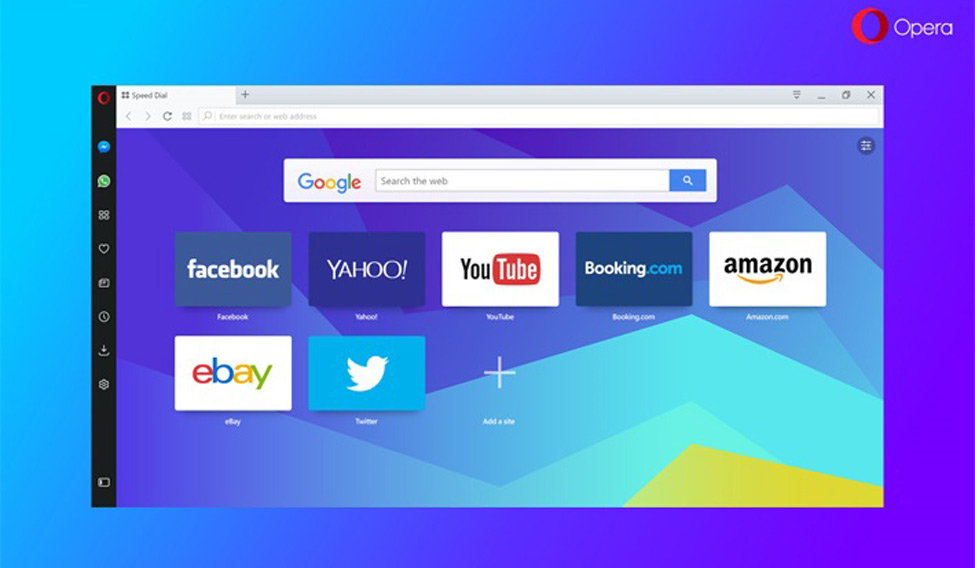Opera has been around since 1994. It began as a research project of the Norwegian telecom company Telenor and ended up with over 300 million users world wide who appreciated its many 'firsts'—features that other browsers copied—like pop-up blocking, private browsing, and tabbed browsing. It also extended its reach by launching a mobile version Opera Mini that has proved to be quite popular. Since November 2016, the Opera name and web browser business has been transferred to a Chinese consortium , Golden Brick Capital Private Equity Fund, though development still takes place in Oslo.
Sometime before this sale, Opera co-founder Jon von Tetzchner, left and co-founded Vivaldi Technologies and launched a browser of the same name in April last year. Vivaldi went for a minimalist look, leaving a lot of room for the user to customise the page. It calls itself ' a browser for our friends'. So far Vivaldi has not come out in a mobile avatar.
Both these browsers have come up with interesting updates in recent days:
Opera browser 'reborn', goes 'social'
Last month Opera launched a newdesktop browser variant called Reborn—the first major browser to integrate social messenger services, allowing users to chat side-by-side as they browse.
While web versions of social messengers have increasingly become popula, switching between tabs when responding to a message has remained cumbersome. With the new browser, Opera allows the messengers to reside within your browser without the need to install any extensions or apps.
The new messenger experience includes: A quick access to web versions of popular messengers - Facebook Messenger, WhatsApp directly from the browser’s sidebar; simultaneous browsing and chatting with a side tab for messengers; easy photo sharing by dragging any online picture to the messenger’s icon and a menu button that enables you to log out from messengers directly in the browser
Says Krystian Kolondra, Head of Opera browser: “Social messengers completely changed our lives by allowing us to work, discover new things and communicate at the same time. This shift has come with smartphones, but desktops and laptops, while theoretically more powerful multitasking tools, have been left behind. We believe this needs to change.”
At the beginning of 2017, the company released Opera Neon, a concept browser that captured the essence of how browsing might look like in the future. One of its novelties was the ability to seamlessly hop between discovering new content and chatting with friends, or even sharing online discoveries while browsing. Now, this part of Neon has been brought to the “Reborn” Opera browser.
The Opera Reborn build can be downloaded here.
Vivaldi browser adds improved features to Start menu
Vivaldi has announced version 1.10 of its desktop offering, which builds on its USP of customizable features, by allowing users to give the Start Page their own special look and feel.

Says Vivaldi CEO Jon von Tetzchner: “ The Start Page is a gateway to web. Why should people be restricted to plain startup pages with limited functionality and boring design. We thought it was about time to give people a browser that takes Start Pages seriously.”
Now, you can create multiple "Speed Dials" displaying thumbnail galleries of bookmarks. You can use these to organize and collect links to your favorite web pages. You can replace thumbnails with your own custom images or animated GIFs.
You can also sort all your downloads in a side panel by name, size, date added and date finished.
Other features:
· Quick Commands improvements for users that like to control everything in their browser from their keyboard. The Quick Commands menu lets users navigate to tabs, find search terms, filter lists of available commands and much more.
· Address Bar dropdown list can now exclude bookmarks and typed history.
· Controlling new tabs via third-party extensions with additional functionality, such as productivity tools or reminders.
Vivaldi is available for Windows, Mac and Linux.



